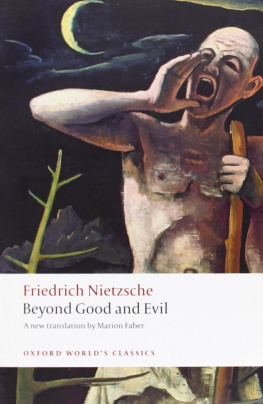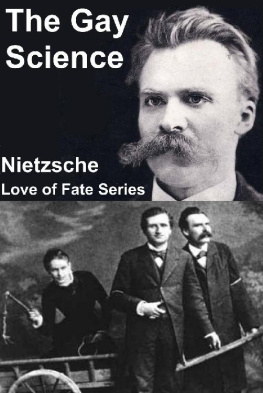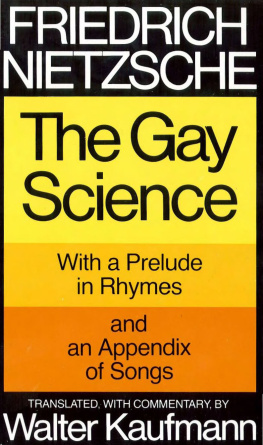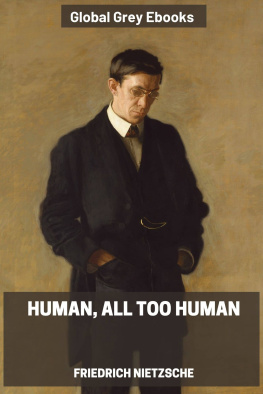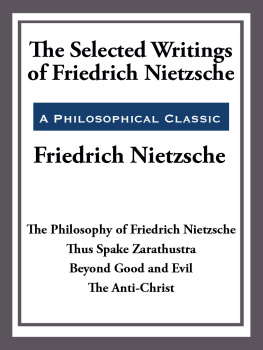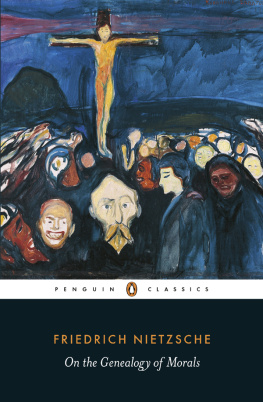
Great Clarendon Street, Oxford OX2 6DP
Oxford University Press is a department of the University of Oxford. It furthers the Universitys objective of excellence in research, scholarship, and education by publishing worldwide in
Oxford New York
Athens Auckland Bangkok Bogot Buenos Aires Calcutta
Cape Town Chennai Dar es Salaam Delhi Florence Hong Kong Istanbul
Karachi Kuala Lumpur Madrid Melbourne Mexico City Mumbai
Nairobi Paris So Paulo Shanghai Singapore Taipei Tokyo Toronto Warsaw
with associated companies in Berlin Ibadan
Oxford is a registered trade mark of Oxford University Press
in the UK and in certain other countries
Published in the United States
by Oxford University Press Inc., New York
Translation, Notes, Index Marion Faber 1998
Introduction Robert Holub 1998
Chronology Duncan Larbe 1997
The moral rights of the author have been asserted
Database right Oxford University Press (maker)
First published as an Oxford Worlds Classics paperback 1998
All rights reserved. No part of this publication may be reproduced, stored in a retrieval system, or transmitted, in any form or by any means, without the prior permission in writing of Oxford University Press, or as expressly permitted by law, or under terms agreed with the appropriate reprographics rights organizations. Enquiries concerning reproduction outside the scope of the above should be sent to the Rights Department, Oxford University Press, at the address above
You must not circulate this book in any other binding or cover and you must impose this same condition on any acquirer
British Library Cataloguing in Publication Data
Data available
Library of Congress Cataloging in Publication Data
Nietzsche, Friedrich Wilhelm, 18441900.
[Jenseits von Gut und Bse. English]
Beyond good and evil: prelude to a philosophy of the future/
translated and edited by Marion Faber: with an introduction by
Robert C. Holub
(Oxford worlds classics)
Includes bibliographical references and index.
1. Ethics. 2. Philosophy. I. Faber, Marion. II. Title.
III. Series: Oxford worlds classics (Oxford University Press).
PR3313.J42E5 1998 193dc21 9815016
ISBN13: 9780192832634
ISBN10: 0192832638
Typeset by Intype London Ltd.
Printed in Great Britain by
Clays Ltd, St Ives plc
OXFORD WORLDS CLASSICS
For over 100 years Oxford Worlds Classics have brought readers closer to the worlds great literature. Now with over 700 titlesfrom the 4,000-year-old myths of Mesopotamia to the twentieth centurys greatest novelsthe series makes available lesser-known as well as celebrated writing.
The pocket-sized hardbacks of the early years contained introductions by Virginia Woolf, T. S. Eliot, Graham Greene, and other literary figures which enriched the experience of reading. Today the series is recognized for its fine scholarship and reliability in texts that span world literature, drama and poetry, religion, philosophy and politics. Each edition includes perceptive commentary and essential background information to meet the changing needs of readers.
Refer to the to navigate through the material in this Oxford Worlds Classics ebook. Use the asterisks (*) throughout the text to access the hyperlinked Explanatory Notes.
OXFORD WORLDS CLASSICS

FRIEDRICH NIETZSCHE
Beyond Good and Evil
Prelude to a
Philosophy of the Future

Translated and Edited by
MARION FABER
With an Introduction by
ROBERT C. HOLUB

OXFORD WORLDS CLASSICS
BEYOND GOOD AND EVIL
FRIEDRICH NIETZSCHE (18441900) was born in Rcken, Saxony, and educated at the universities of Bonn and Leipzig. At the age of only 24 he was appointed Professor of Classical Philology at the University of Basle, but prolonged bouts of ill health forced him to resign from his post in 1879. Over the next decade he shuttled between the Swiss Alps and the Mediterranean coast, devoting himself entirely to thinking and writing. His early books and pamphlets (The Birth of Tragedy, Untimely Meditations) were heavily influenced by Wagner and Schopenhauer, but from Human, All Too Human (1878) on, his thought began to develop more independently, and he published a series of ground-breaking philosophical works (The Gay Science, Thus Spake Zarathustra, Beyond Good and Evil, On the Genealogy of Morals) which culminated in a frenzy of production in the closing months of 1888. In January 1889 Nietzsche suffered a mental breakdown from which he was never to recover, and he died in Weimar eleven years later.
MARION FABER is Professor of German at Swarthmore College in Pennsylvania. Her earlier translations include Nietzsches Human, All Too Human (1994) and Wolfgang Hildesheimers Mozart (1983), a nominee for the American Book Award in translation.
ROBERT C. HOLUB teaches German intellectual, cultural, and literary history in the German department at the University of California, Berkeley. Among his numerous publications on these topics are Reflections of Realism (1991); Jrgen Habermas: Critic in the Public Sphere (1991); Crossing Borders: Reception Theory, Poststructuralism, Deconstruction (1992); and Friedrich Nietzsche (1995). He is the editor of Impure Reason: Dialectic of Enlightenment in Germany (1993), Responsibility and Commitment (1996), and Heinrich Heines Contested Identities (1998).
CONTENTS
INTRODUCTION
THERE is no better introduction to the mature philosophy of Friedrich Nietzsche than Beyond Good and Evil. Written during the summer of 1885 and the winter of 1886, this work assumes a pivotal position in his oeuvre. It was the first published work after the monumental Thus Spake Zarathustra, which laid out central tenets of Nietzsches philosophy in parabolic form. Conceived as a parody of the Bible, the four books of Zarathustra presented the reader with the activities and speeches of the eponymous hero, who is surely Nietzsches spokesperson. Beyond Good and Evil covers some of the same ground, but in this work Nietzsche does not offer us a narrative and parables that require interpretation, but rather a series of aphorisms. Nietzsche himself was conscious of the affinities in content between Zarathustra and Beyond Good and Evil. Writing to his colleague Jacob Burckhardt, the celebrated art historian at Basle, he claimed that his new book says the same things as my Zarathustra, but differently, very differently. But he was also aware that Beyond Good and Evil represents a return to earlier efforts from the 1870s and early 1880s, in which he did not communicate with his reader through a persona. In his correspondence Nietzsche called his new work a fifth Untimely Meditation, referring to writings of the early 1870s in which he focused on a central theme or person. And he told a prospective publisher that he was ready to publish a second volume of
Next page
